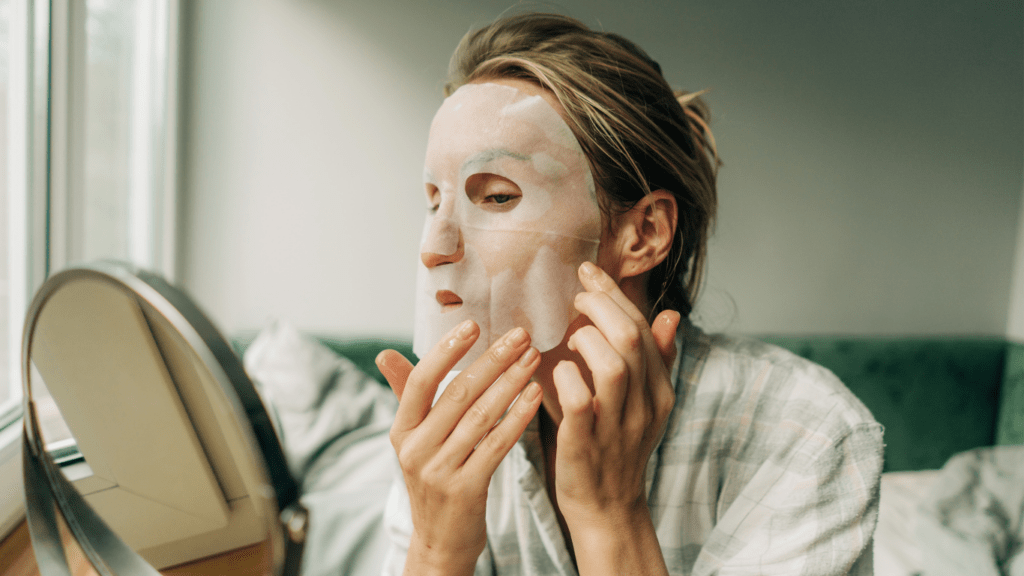Understanding Aging and Skin Health
Aging impacts skin health in numerous ways. Natural ingredients can aid in maintaining a youthful appearance by addressing these effects.
The Science Behind Aging Skin
Skin aging occurs due to various biochemical processes. Collagen and elastin, two primary skin proteins, degrade over time. Collagen provides structural support while elastin maintains skin’s elasticity. As production declines, skin becomes thinner and more prone to wrinkles.
Common Factors Contributing to Skin Aging
Several factors expedite skin aging. Sun exposure damages collagen fibers, leading to photoaging. UV rays cause oxidative stress, breaking down skin’s structural proteins. Smoking restricts blood flow, depriving skin of essential nutrients. Poor diet, particularly lacking in antioxidants, fails to combat free radicals, accelerating aging. Additionally, repetitive facial expressions create fine lines over time.
Natural ingredients can mitigate these factors, supporting healthier, more resilient skin.
Benefits of Natural Anti-Aging Solutions
Natural anti-aging solutions offer a multitude of benefits that synthetic products often lack. Organic ingredients nourish the skin without the risk of harmful side effects.
Why Choose Organic Ingredients?
Organic ingredients are free from harsh chemicals and synthetic additives. Many contain vitamins, antioxidants, and essential fatty acids. These elements boost skin health and protect against premature aging. For example, rosehip oil, rich in vitamins A and C, supports collagen production. Organic products also reduce the risk of irritation and allergic reactions, making them suitable for sensitive skin.
Comparing Natural vs. Synthetic Products
Natural products often provide long-term benefits, while synthetic ones may offer only temporary improvement. Natural ingredients penetrate the skin deeply, delivering sustained nourishment. Aloe vera, for instance, hydrates and soothes without clogging pores. Conversely, synthetic anti-aging solutions sometimes include parabens and phthalates, which can disrupt hormones and damage skin over time. The absence of these harmful chemicals in natural products ensures safer skincare.
Key Organic Ingredients for Anti-Aging
Certain organic ingredients can effectively combat fine lines and support youthful skin. Here’s a closer look at some key components.
Aloe Vera
Aloe vera hydrates the skin deeply due to its high water content. The plant’s gel contains vitamins C and E, which are critical for reducing fine lines. Aloe vera also has polysaccharides that stimulate skin repair and collagen production, fostering a plump, smooth complexion. Its anti-inflammatory properties can soothe irritated skin, making it suitable for sensitive skin types.
Green Tea Extract
Green tea extract is packed with antioxidants like catechins and polyphenols. These compounds neutralize free radicals, protecting the skin from oxidative stress and delaying the aging process. The extract’s anti-inflammatory properties reduce puffiness and redness. Its ability to constrict blood vessels can minimize dark circles and promote a more even skin tone.
Rosehip Oil
Rosehip oil is rich in vitamins A and C, which boost collagen production and skin regeneration. The oil’s essential fatty acids, such as omega-3 and omega-6, improve skin elasticity and moisture retention. Rosehip oil also contains lycopene and beta-carotene, which repair damaged tissues and reduce acne scars. Its deep penetration ensures long-lasting hydration without clogging pores.
Jojoba Oil
Jojoba oil closely mimics the skin’s natural sebum, making it an excellent moisturizer. It contains vitamin E and B-complex vitamins that repair and nourish the skin. Jojoba oil’s anti-inflammatory and antibacterial properties help combat skin infections and reduce fine lines. Its non-comedogenic nature means it won’t block pores, making it ideal for all skin types.
How Organic Ingredients Combat Fine Lines

Organic ingredients combat fine lines through several mechanisms, promoting healthier, more resilient skin. Below, I detail how these natural elements address aging concerns.
Promoting Collagen Production
Organic ingredients like rosehip oil, aloe vera, and vitamin C boost collagen production. Collagen, a critical protein, maintains skin structure and elasticity. Rosehip oil supplies essential fatty acids and vitamins A and C, vital for stimulating collagen synthesis. Aloe vera contains amino acids and minerals that encourage fibroblast activity, which produces collagen. Vitamin C, found in citrus extracts and berries, supports the skin’s natural regeneration process by acting as a cofactor in collagen production, ensuring firmer skin over time.
Hydration and Moisture Retention
Proper hydration is essential for maintaining plump, youthful skin. Organic ingredients such as hyaluronic acid, jojoba oil, and shea butter excel in moisture retention. Hyaluronic acid holds up to 1,000 times its weight in water, providing intense hydration that smooths out fine lines. Jojoba oil, which mimics the skin’s natural sebum, balances oil production and locks in moisture without clogging pores. Shea butter, rich in essential fatty acids and vitamins, deeply moisturizes and provides a protective barrier against environmental stressors, ensuring hydrated and supple skin.
Antioxidant Properties
Antioxidants neutralize free radicals, which cause oxidative stress and accelerate skin aging. Ingredients like green tea extract, vitamin E, and pomegranate are rich in antioxidants. Green tea extract contains catechins, powerful antioxidants that protect against UV damage and improve skin elasticity. Vitamin E, found in many plant oils, mitigates oxidative damage and promotes healing. Pomegranate’s ellagic acid, another potent antioxidant, helps preserve collagen and elastin, maintaining skin firmness and reducing the appearance of fine lines.
Organic ingredients offer multi-faceted solutions to combat fine lines, promoting collagen production, ensuring hydration, and delivering powerful antioxidants.
Integrating Natural Anti-Aging Solutions into Your Routine
Finding quality natural anti-aging solutions enhances your skincare routine, offering substantial benefits without adverse effects. I’ll share tips for selecting quality products and DIY treatments to help you get started.
Tips for Selecting Quality Products
Selecting quality natural anti-aging products is crucial. Here are essential tips:
- Ingredients Check: Ensure the product lists organic ingredients like rosehip oil, aloe vera, or green tea extract. Avoid those with parabens, phthalates, and synthetic fragrances.
- Certification: Look for certifications from trusted organizations, such as USDA Organic or EcoCert, verifying the product’s authenticity.
- Packaging: Opt for products in dark glass bottles to protect the integrity of light-sensitive ingredients like vitamin C.
- Brand Reputation: Choose brands known for their commitment to natural ingredients and transparency in sourcing and manufacturing processes.
- Reviews: Read user reviews focusing on long-term benefits, especially for products with natural oils and extracts.
DIY Anti-Aging Treatments at Home
Creating DIY anti-aging treatments at home allows for customization and control over ingredients. Consider these simple recipes:
- Honey and Avocado Mask: Mix 2 tablespoons of honey with half an avocado. Apply to the face for 20 minutes. Honey hydrates while avocado provides essential fatty acids.
- Green Tea Toner: Steep green tea bags in hot water, let it cool, then transfer to a spray bottle. Use as a toner to deliver antioxidants to the skin.
- Rosehip Oil Serum: Combine rosehip oil with 2 drops of vitamin E oil. Massage into the skin at night to promote collagen production and reduce fine lines.
By incorporating these tips and DIY treatments, achieving youthful, radiant skin with natural anti-aging solutions becomes straightforward and effective.
Potential Side Effects and Considerations
Exploring natural anti-aging solutions requires awareness of potential side effects and considerations. Even organic ingredients can cause reactions.
Allergic Reactions
Allergic reactions can occur with natural ingredients like essential oils. For instance, lavender oil, often used for its soothing properties, can cause skin irritation in sensitive individuals. Symptoms can range from redness and itching to more severe reactions like swelling. Always monitor skin’s response closely when trying new products. If any signs of an allergic reaction appear, discontinue use immediately.
Patch Testing Organic Products
Patch testing is crucial when using new organic products. Apply a small amount of the product to a discreet area, like the inner forearm. Wait 24-48 hours, checking for signs of reaction. This step ensures the skin doesn’t react adversely to the ingredients. Even well-known ingredients like aloe vera, renowned for its healing properties, can trigger reactions in some individuals. Conducting a patch test minimizes the risk and ensures safe usage of the product on facial skin.



